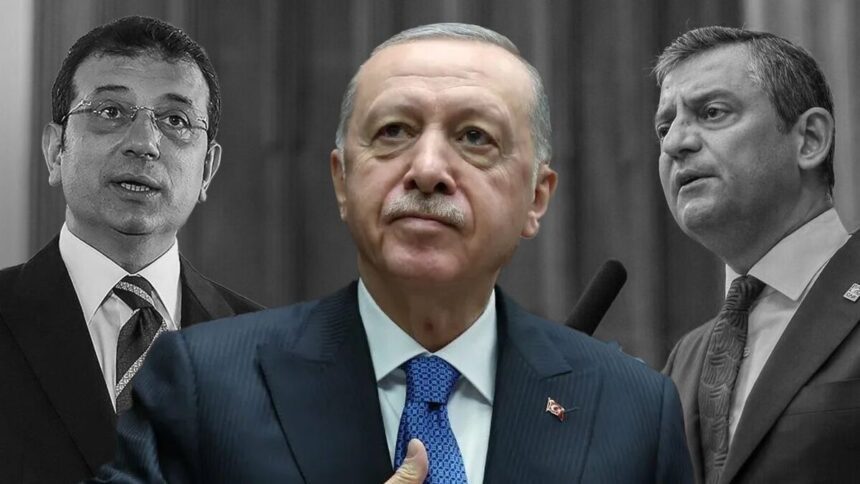In his latest group meeting speech at the Turkish Grand National Assembly, President Recep Tayyip Erdoğan delivered a set of veiled yet ominous warnings aimed squarely at Istanbul Mayor Ekrem İmamoğlu and the opposition Republican People’s Party (CHP). Among his most alarming statements was the metaphorical threat that once “the big radishes in the bag are spilled,” those involved would not even be able to “look their own relatives in the face.” Though cryptic in phrasing, the implication was unmistakable: Erdoğan was hinting at the release of scandalous or compromising material—possibly including sex tapes—against members of the opposition.
This maneuver marks a deepening of Erdoğan’s long-standing strategy of political intimidation. While Erdoğan has previously used metaphors like “the big radish” to foreshadow future revelations or legal action, his latest remarks—targeting not just political corruption but the personal lives of opponents—cross a line into character assassination and moral shaming.
A Calculated Escalation
In his speech, Erdoğan accused İmamoğlu’s administration of operating like “an octopus enveloping Istanbul” with a network of fraud, fake diplomas, bribery, and extortion. However, he emphasized that what has been revealed so far is only the “visible part” of the alleged wrongdoing. The real damage, he suggested, lies ahead, with damning evidence still to be released.
What Erdoğan left unsaid was as powerful as what he did say. In the context of Turkish political discourse—where sexual misconduct, especially when framed in moralistic terms, can swiftly destroy reputations—his phrase about people being unable to face their families carries a heavy implication. Turkish observers and journalists widely interpreted this as a veiled reference to potential sex tapes or other forms of personal scandal.
Özgür Özel’s Defiant Response
CHP Chairman Özgür Özel did not let the insinuations go unanswered. In a striking rebuttal, he declared:
“There are no new radishes or whatever. If any evidence comes out that would make it so I couldn’t look my family in the face, I accept it. Next week, I’ll start listing them.”
This response flipped the moral accusation back on Erdoğan. By implying that Erdoğan and his circle could themselves be subjected to scrutiny if these standards were applied equally, Özel struck a rare tone of boldness in a political climate increasingly constrained by fear and repression.
He went further, accusing the Erdoğan administration of attempting to install their own appointees in the Istanbul Municipality by revoking İmamoğlu’s diploma and arresting him in the early morning hours—actions aimed at paving the way for a trustee to replace the elected mayor. This, he said, was ultimately unsuccessful.
Fear as a Political Tool
The use of personal scandals—real or fabricated—as political weapons reflects a broader shift in Turkish governance: from democratic competition to authoritarian control. When leaders resort to innuendo and smear tactics instead of transparent legal processes, they blur the line between the state and their personal political agendas.
Such strategies also reinforce Erdoğan’s image as a political strongman who is willing to do whatever it takes to maintain power, even at the cost of democratic norms and basic human dignity. The weaponization of shame, especially in a socially conservative society like Turkey, is a powerful tool. It silences critics, fractures opposition unity, and shifts the political conversation away from the AKP’s governance failures.
Beyond Political Theater
Özel also criticized Erdoğan’s timing and tactics, pointing out the cruelty of engaging in such smear campaigns during the holy month of Ramadan. Referring to Erdoğan’s comments as lies and acts of hate, he stated:
“Mr. Tayyip resorted to lies on this blessed day of Ramadan… You don’t even have the tiniest measurable amount of conscience left.”
These are not merely insults exchanged in a heated political arena—they are reflective of a broader ethical collapse in Turkish political life. When the highest office in the land uses the threat of personal exposure rather than facts and policy to discredit opponents, democracy suffers. When morality is weaponized rather than lived, the people lose faith not only in leaders but in the institutions that are supposed to represent them.
President Erdoğan’s threats—whether or not they materialize—are a sign of the political desperation gripping the ruling party. With the early elections looming and public dissatisfaction growing over economic woes and authoritarian overreach, the AKP appears willing to resort to shame, fear, and personal attacks rather than persuasion or reform.



